Introduction
The western ideals of the 19th century are also synonymous to European civilization which affected the indo-European political and social systems.
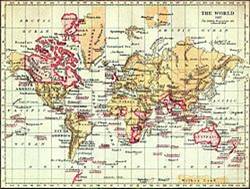
There were myriad of artifacts that were developed during this time as part and parcel of customs and social norms that were of great value to the society.
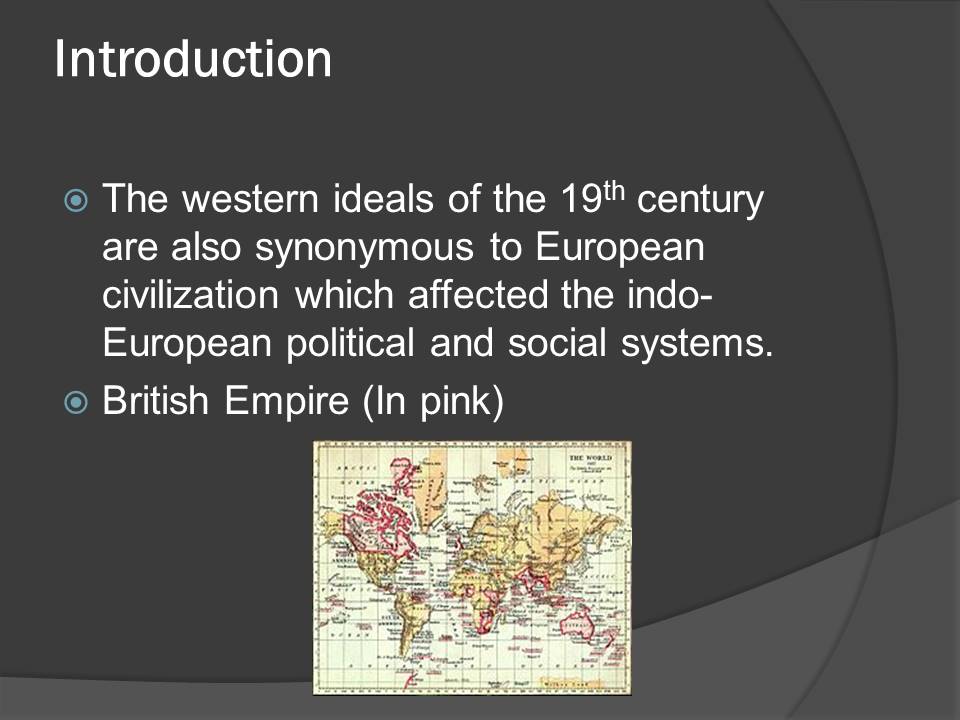
Social Issues
The first type of western ideal that grossly influenced the social way of life was the Greco-Roman Classical. It referred to geographical regions that had been influence by old age arts of work (Spielvogel, 2011).
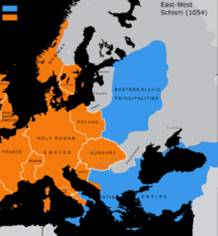
Greco-Roman Classical
The ancient Greeks and Romans alongside with their culture greatly influenced the nature of Greco-Roman culture in terms of religion, culture and language use. Hence, the term Greco-Roman classical referred to the early works by the Greeks and Romans which had great influence in the western civilization. Much of the Greco-Roman classical were later embraced as tools of western civilization such that a lot of cultural practices were borrowed from the earlier traditions. The Greek and Roman rules were used to advance education in various levels of learning such as rhetoric, architecture and art.
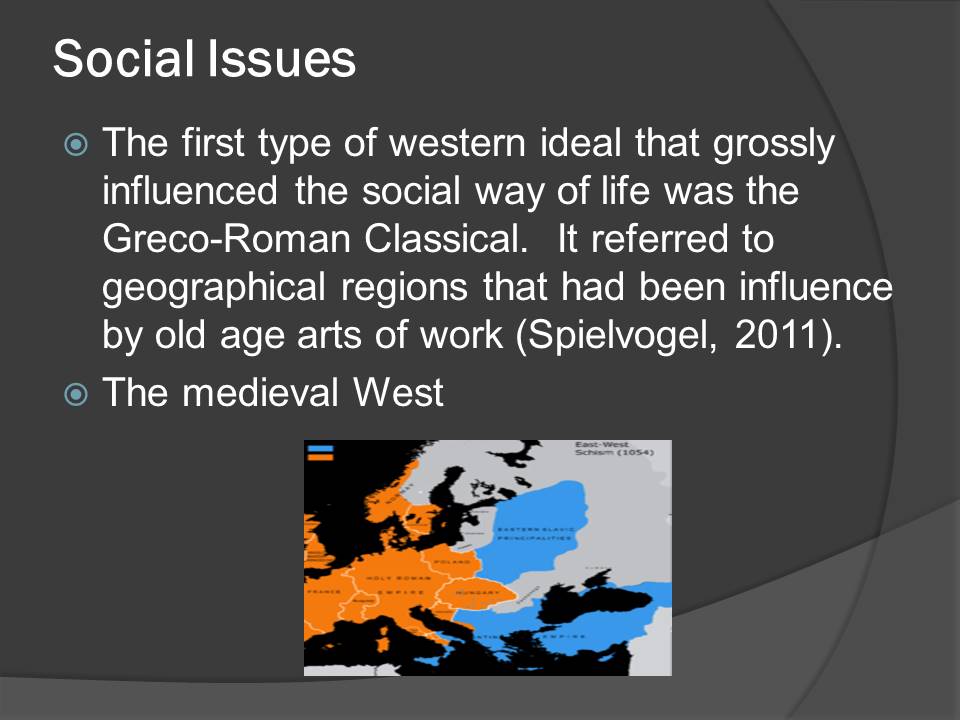
Slave trade
The new dawn in the wake of western civilization of the 19th century was also characterized with the abolition of slave trade (Spielvogel, 2011).
It was considered an indecent human practice that had been bypassed by civilization. The Barbary pirates were forced out of slave trade following slave revolts.
Spiritual thinking
This was harnessed through Christianity and in the use of the Bible as a holy written doctrine. This was especially eminent during the Post-classical era when modernity was taking shape even in religious circles.
The influence brought about by strict adherence to Roman culture, popularly known as Romanticism, was heavily characterized with myriad of western practices that were considered to be ideal at that time. These ideals included ethic and oral traditions, folkloric, musical as well as artistic works. They were all branded as western folk cultures.
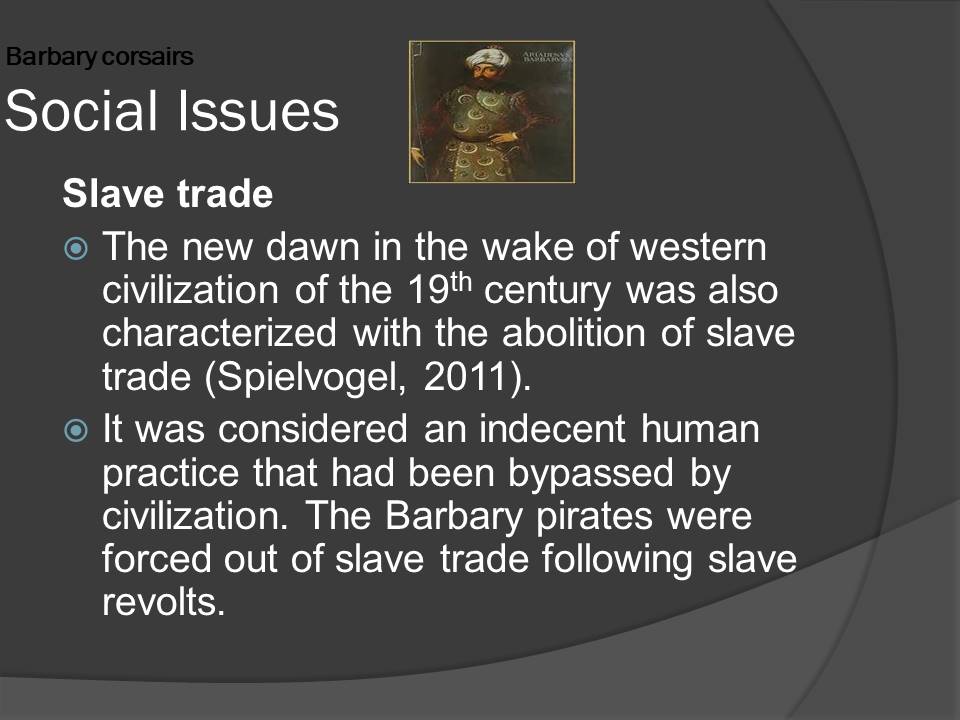
Realism in arts of work
The romantic ethos of various artworks was rejected by realism. In addition, morality as defined by bourgeois was also not a darling to realism. The highly sordid elements of the industrialized world were attacked by realists.

For instance, the 19th century society was portrayed by Charles Dickens in Britain as inhuman exploitation of those who belonged in the working class. Besides, the Madame Bovary was ridiculed by Flaubert in France while the Russian literature was injected with the ideals of realism courtesy of Fyodor Dostoyevsky.
New science
This was introduced by Charles Darwin in his book, The Origin of the Species published in 1859.
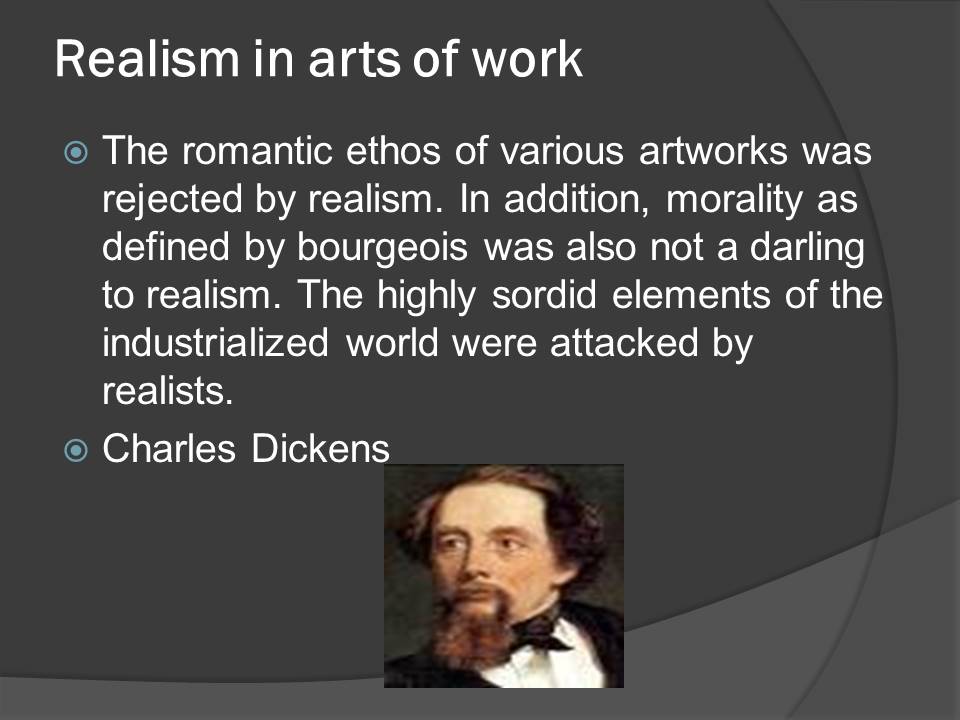
Social instability
There was massive migration of populations from the rural settings to the urban areas.
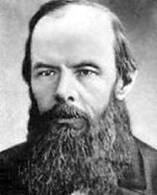
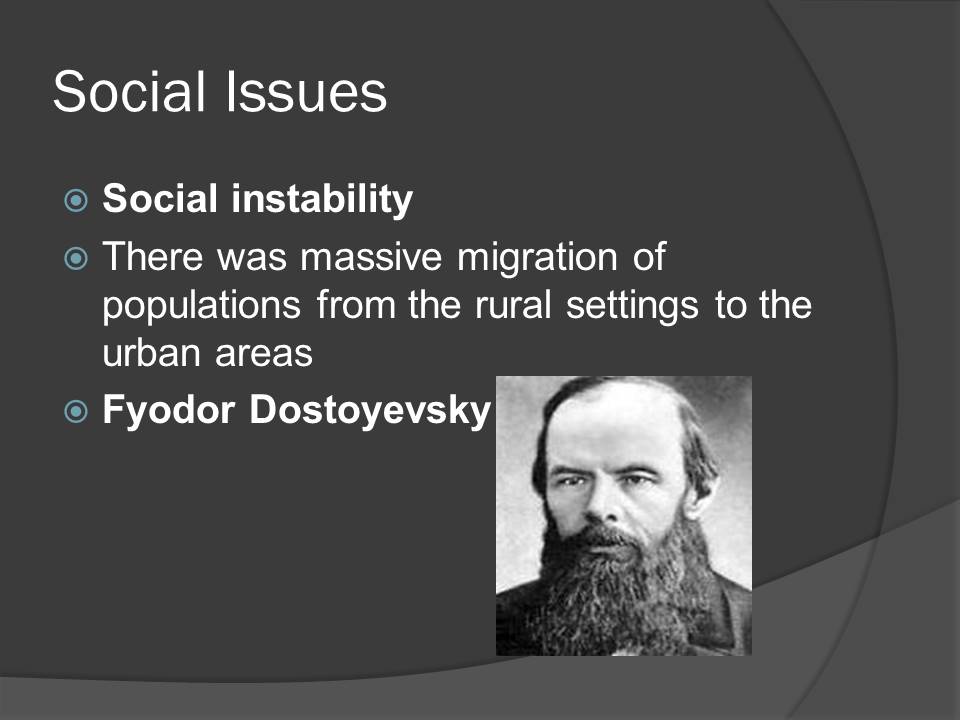
Political Issues
An independent European diplomatic system was created by the Napoleonic wars.
The subsequent unification of the states which won the war led to peace deal that later witnessed the installation of balance of power, compensation of war victims as well as legitimate governance.
This took place in 1815(Spielvogel, 2011).
New ideologies
The political structure of western Europe was vastly changed with the influence brought about by industrialization. New political ideologies arose as a result of industrialization(Kishlansky, Geary & O’Brien, 2008).
The politics of preserving order
The balance between individual liberty and the authority of the state was sought while at the same time attempting to preserve the stability of the nation. As for the conservatives, corporate institutions were perceived to be still of great importance while at the same time holding to the ideals of traditions (Spielvogel, 2011).
Romanticism and change
A collection of artistic and literary styles characterized the movement of romanticism that was also in line with the political ideologies of western civilization in the 19th century.
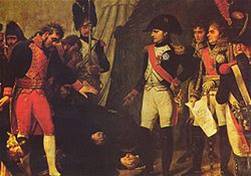
Samuel Taylor Coleridge and William Wordworth were among the founders of romanticism. One of the outstanding ideals that were emphasized by romanticism was the relative impotence of emotion compared to intellect. Moreover, Classical formalism was equally rejected by romantics even in gardening.
The French school of romanticism was represented by Hugo Victor and Germaine de Stael(Spielvogel, 2011). Both of these personalities were very emphatic on the need to pursue the ideal of subjective self-consciousness. Music, art and literature were useful tools for romantics to advance their ideas especially those pursuits that touched the spirit of nationalism. The spirit of national literature was a key area of concern for nationalists who were well convinced that it would be easy to influence the wider society by spreading their tentacles on the oral and written literature.
Transformation of state and society
The two closely interwoven political doctrines during the 19th century era were liberalism and nationalism.
The fact that people desired to create governments that were constitutional led to the rise of the spirit of nationalism.
There was dire need to stamp out foreign domination and tyranny as had been witnessed before (Kishlansky, Geary & O’Brien, 2008).
The emergence of industrialization created also precipitated the ideals of socialism since it was possible to organize an industrialized society according to their level of production.
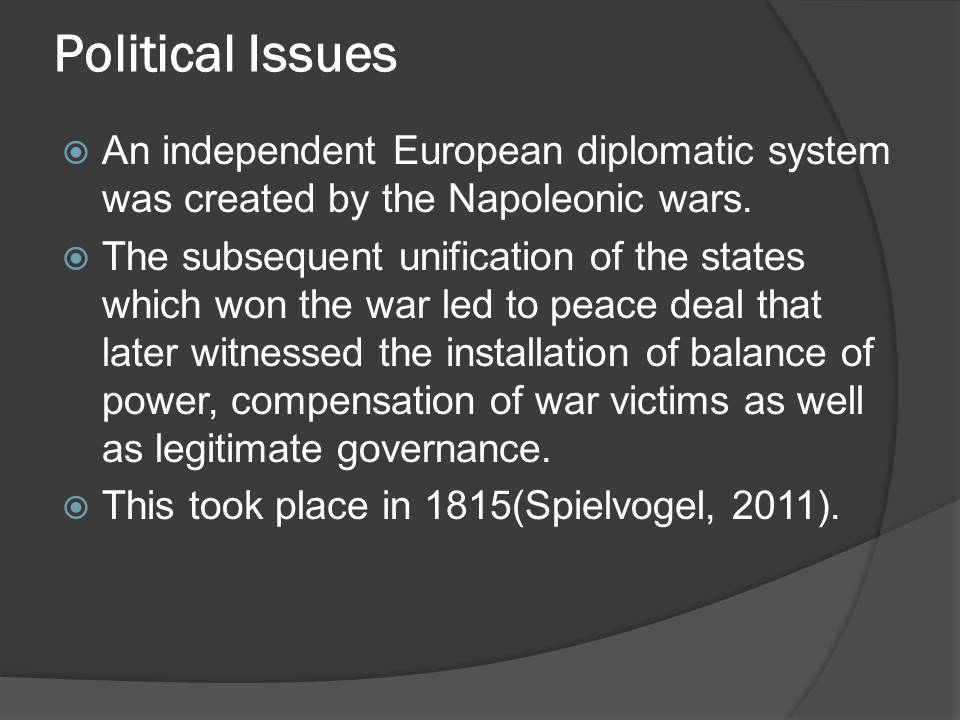
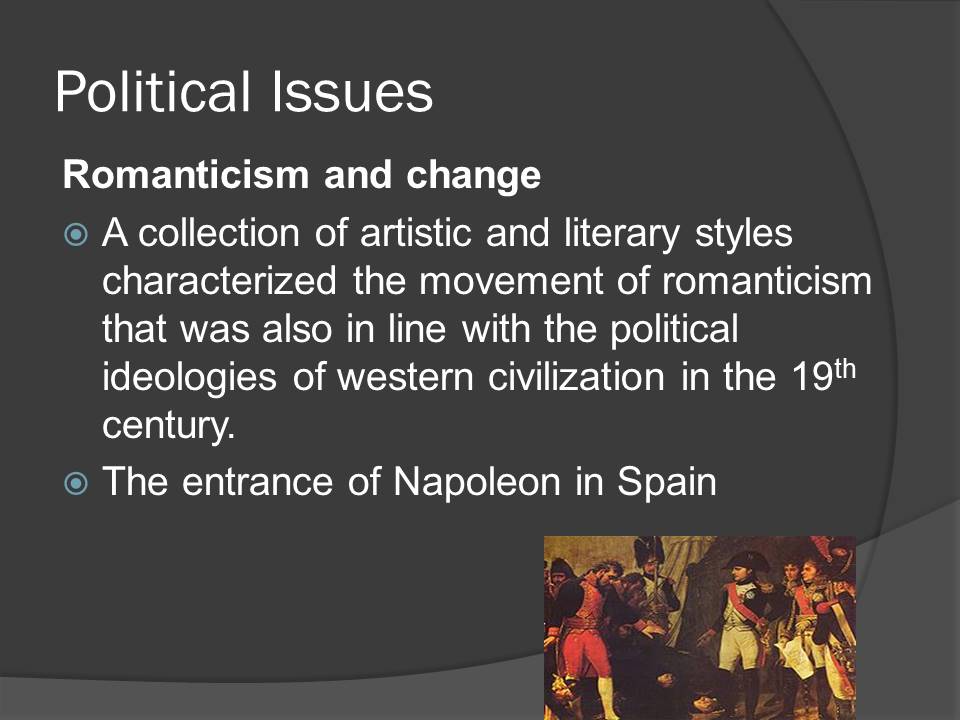
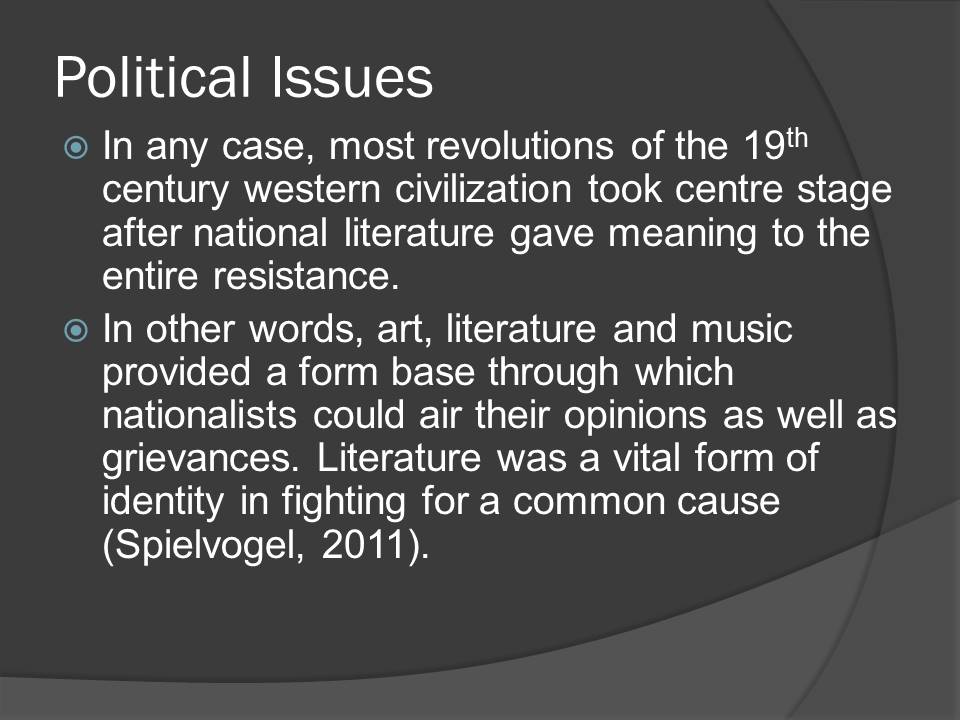
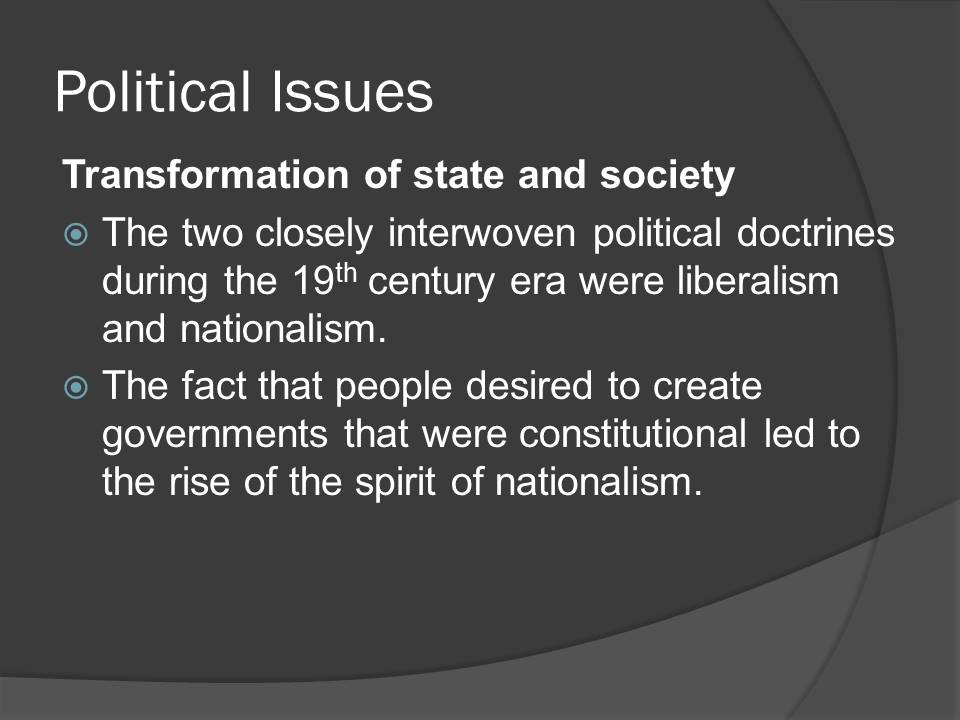
References
Kishlansky, M., Geary, P. & O’Brien, P. (2008). Civilization in the West (5th ed.), New York: Longman Pearson Education, Inc.
Spielvogel, J.J. (2011) Western Civilization: A Brief History, Boston: Cengage Learning.